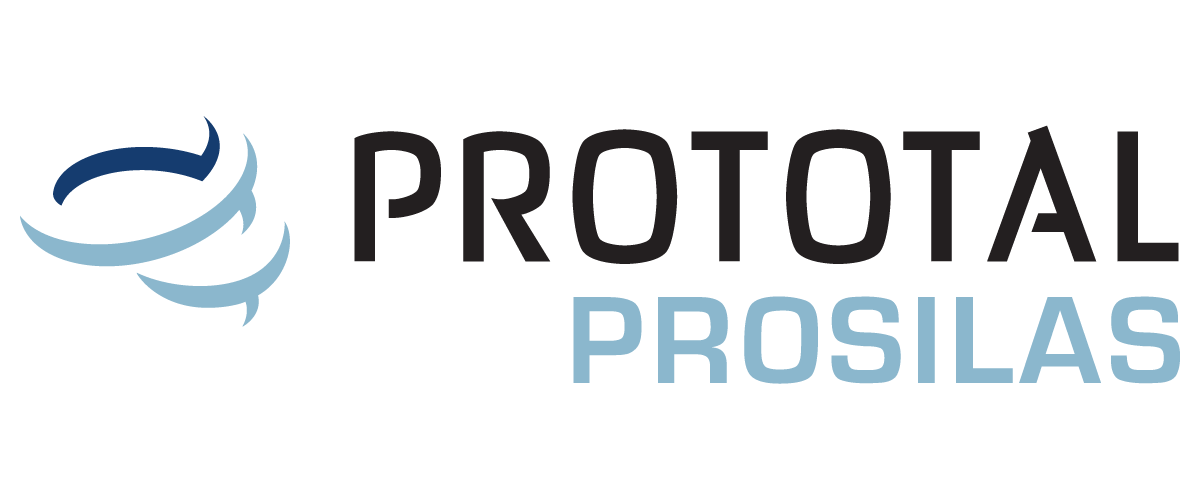Lube Volley + Prosilas Case History
What Prosilas and Lube Volley have in common is not only their city of origin, Civitanova Marche, but also their shared pursuit of challenges and desire to succeed. For the esteemed Marche team, this translates into winning trophies and championships. Meanwhile, for Prosilas, it means constantly seeking innovative solutions to support the development of an increasingly demanding industrial market. The collaboration between the two companies was recently solidified through a sponsorship agreement, which prominently displays Prosilas’ name on the volleyball team’s uniforms. Additionally, they engage in a strong joint effort that connects sports achievements with the utilization of additive manufacturing.
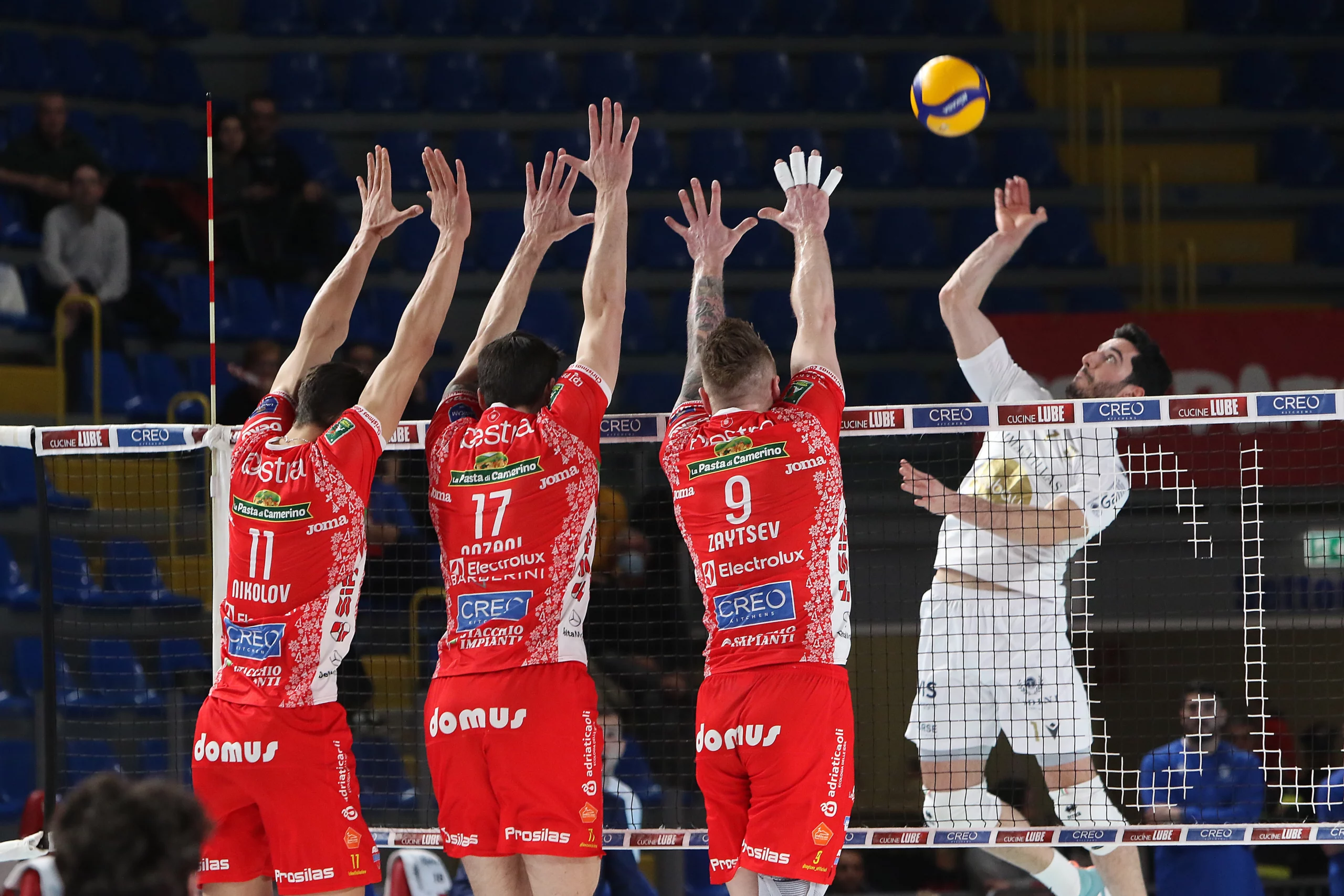
Lube Volley, Prosilas-supported club is the most successful in the 21st century
Champion of Italy 2022, Lube Volleyball is an acclaimed team, boasting in its list of victories a World Club title, seven league titles (the last three won consecutively), two Champions Leagues, seven Italian Cups and four Italian Super Cups, three CEV Cups and one Challenge Cup. The team expresses a very high technical level of play, capable of always competing at the top: and when playing at high levels even small details can make a difference.
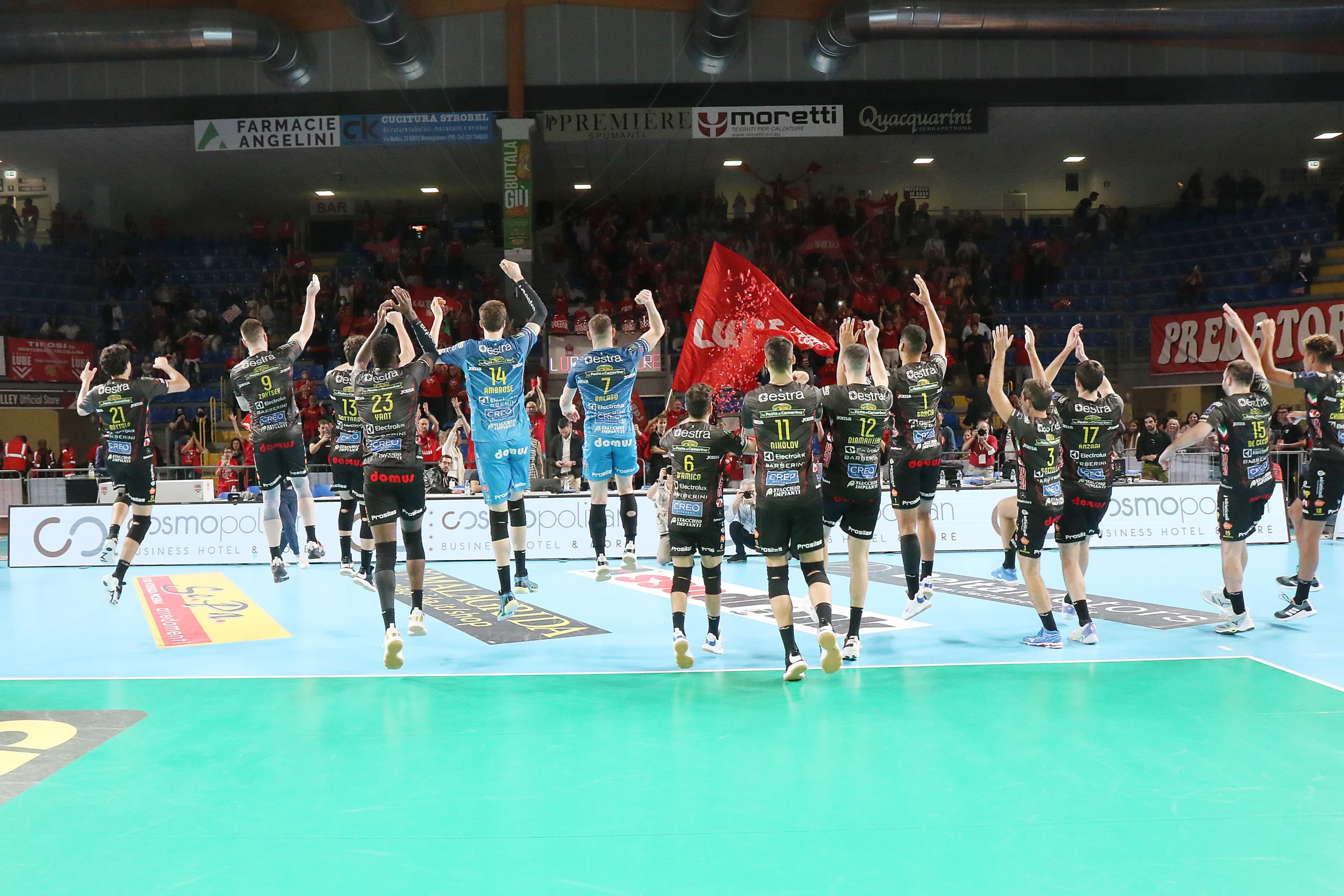
Lube Volley, the team
A tangible collaboration, thanks to 3D printing
When Enrico Diamantini and Ivan Zaytsev, two prominent athletes from the club, expressed their need for new hand protection devices during games, the relationship between Lube Volley and Prosilas evolved beyond a simple sponsorship. Prosilas immediately utilized its expertise in 3D printing to develop an innovative, customized, and tailored solution for both players.
‘We took the opportunity to get even closer to the world of medicine and sport, trying to develop a truly useful and professional application,’ says Vanna Menco, CEO Prosilas
Diamantini required an alternative to the temporary brace he had been using to support his injured right little finger, while Zaytsev needed a replacement for the medical tape he typically used to stabilize his fingers during high-impact phases of the game.
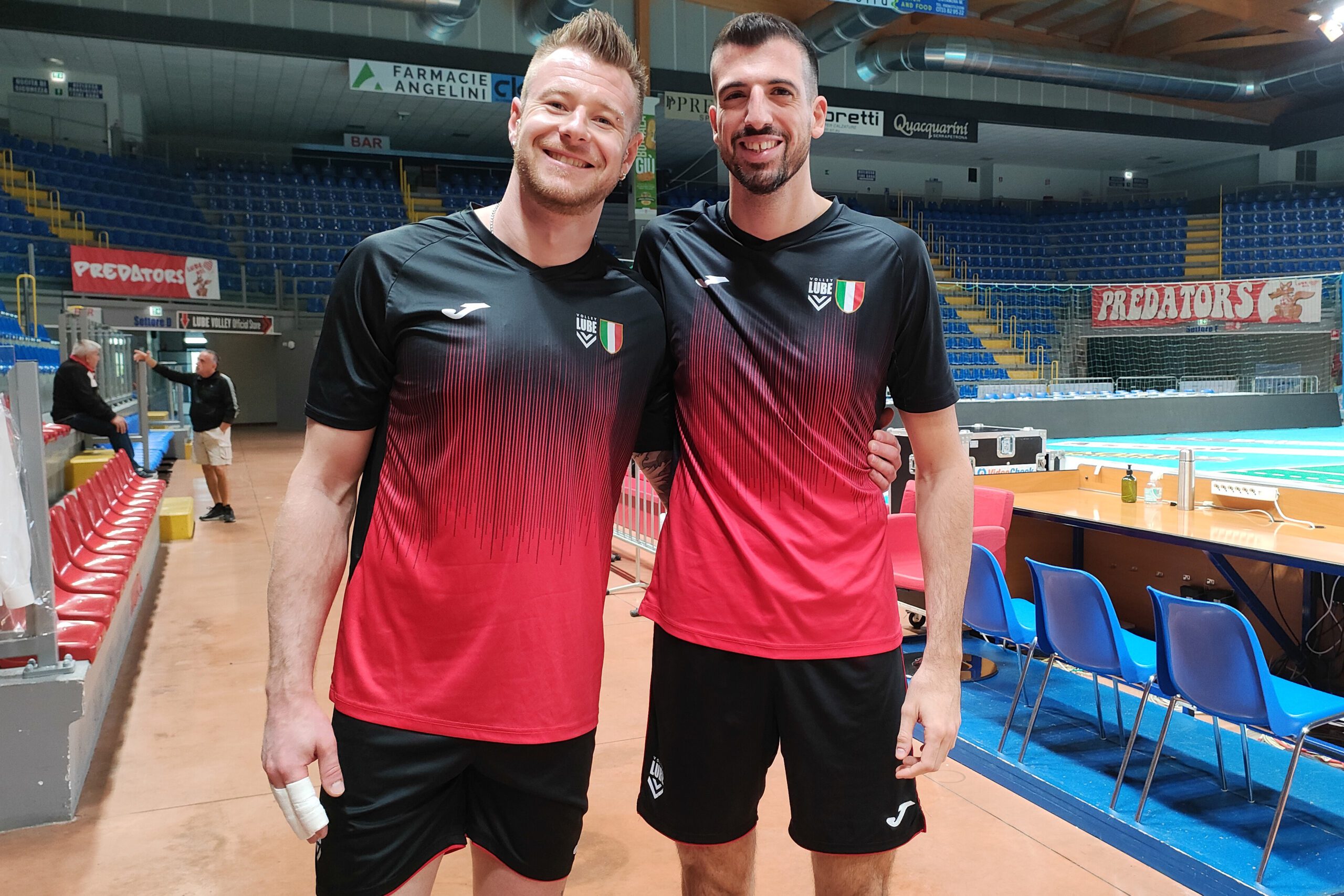
Ivan Zaytsev and Enrico Diamantini
The previous solutions had limitations in terms of materials, lacking of technical performance, reusability, and customization, which resulted in a sub-optimal playing experience. However, with the advent of 3D printing, Prosilas believed that they could overcome these limitations and produce custom-made and reusable devices with exceptional speed and precision.
For Diamantini, the old brace was rigid, bulky, and therefore uncomfortable. The negative impact on his ball touch led him to use it sporadically and only for the minimum required time. Similarly, Zaytsev sought a custom-made, reusable alternative that provided better sensitivity compared to traditional medical tape.
Through their collaboration with Prosilas, both athletes found the solution they were looking for, addressing their specific needs and improving their playing experience on the court.
Fast and successful product development
The initial phase of the project focused on acquiring the 3D models of Diamantini and Zaytsev’s hands using the Gom Atos 5 3D scanner, which involved scanning plaster casts. Subsequently, the design phase commenced, incorporating reverse engineering techniques to accurately model customized designs. These designs were tailored to protect and immobilize the injured joint in one case, and provide comfortable support in the other. The devices underwent testing and, with valuable feedback from the athletes, were progressively refined to achieve the best possible results.
“The responsiveness of additive technology is truly remarkable. The initial contact with the players took place in October 2022, and after just five rounds of improvements, we were able to arrive at the final version of the devices for both players within a very short timeframe,” states the CEO of Prosilas.
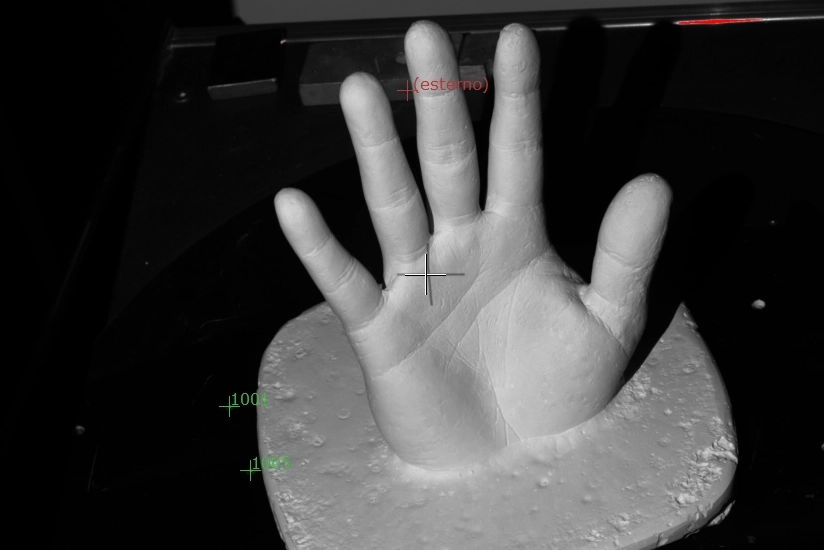
3D scan of Ivan Zaystsev’s right hand
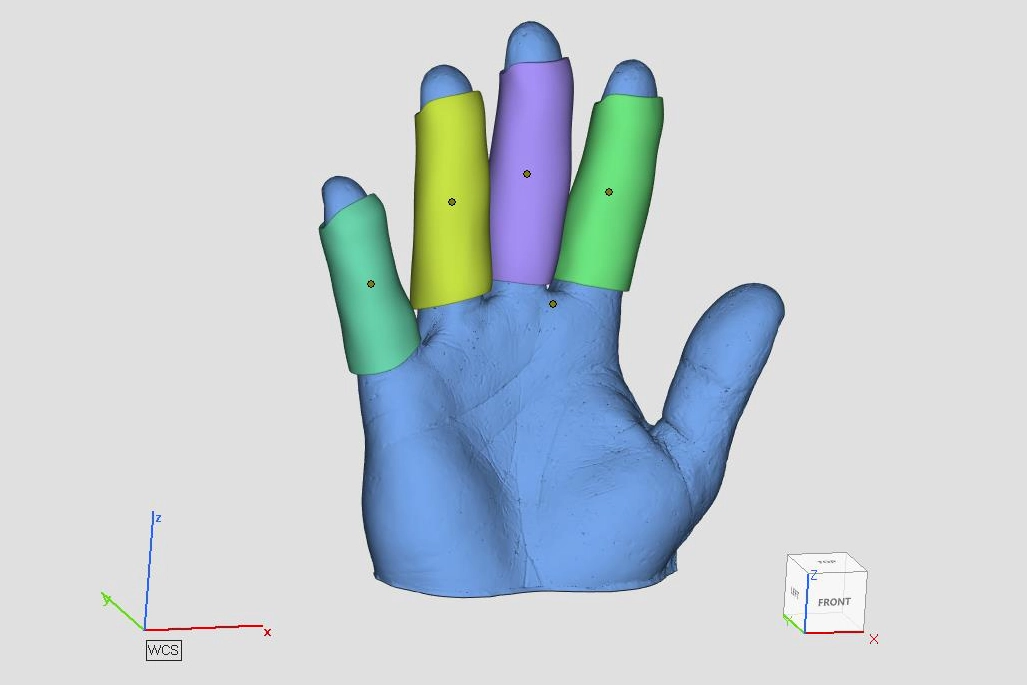
3D design through reverse engineering of protective devices
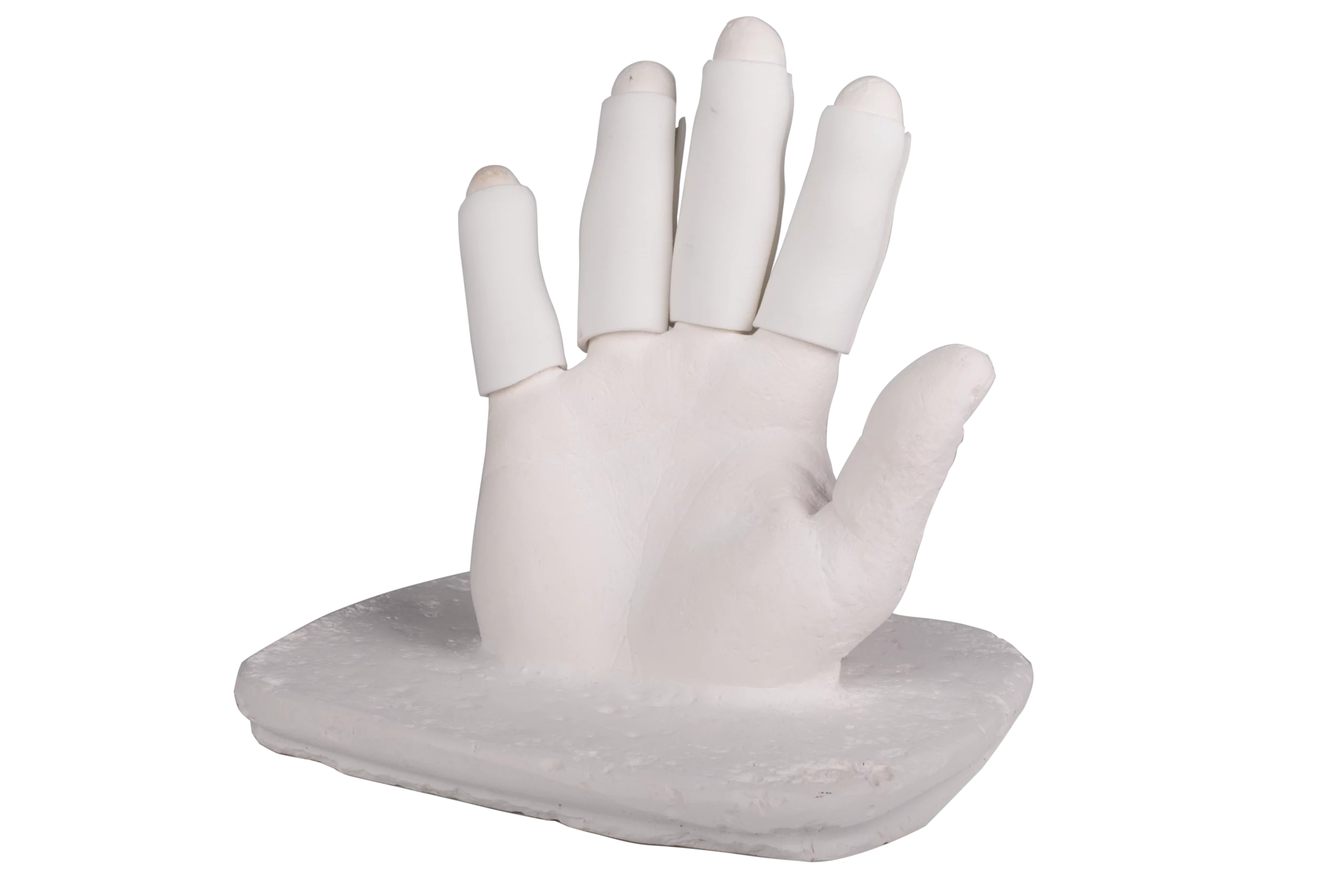
TPU protective devices being tested on the cast of Ivan Zaystsev’s right hand
TPU: a strategic choice
To create these customized and highly comfortable devices, Prosilas opted for BASF’s TPU Ultrasint 88a due to its flexibility and mechanical impact resistance. Thermoplastic polyurethane (TPU) is an elastic polymer known for its versatility and resilience. It can withstand shocks, abrasions, tears, chemical and weathering agents, and is impermeable to water and gases.
TPU is often considered the intersection between rubber and plastic, thanks to its physical characteristics, wide range of hardness options, and flexibility without the need for plasticizers.
For the initial test with Diamantini, three different TPU models were created using SLS (Selective Laser Sintering) technology, each with varying thicknesses of 1, 1.5, and 2 mm. TPU allows for slight variations in thickness, enabling flexibility in the final product.
For Zaytsev, an initial set of devices was produced with a consistent thickness of 2 mm to provide greater rigidity. Additionally, a lateral cut was made to improve the fit of the devices for him.
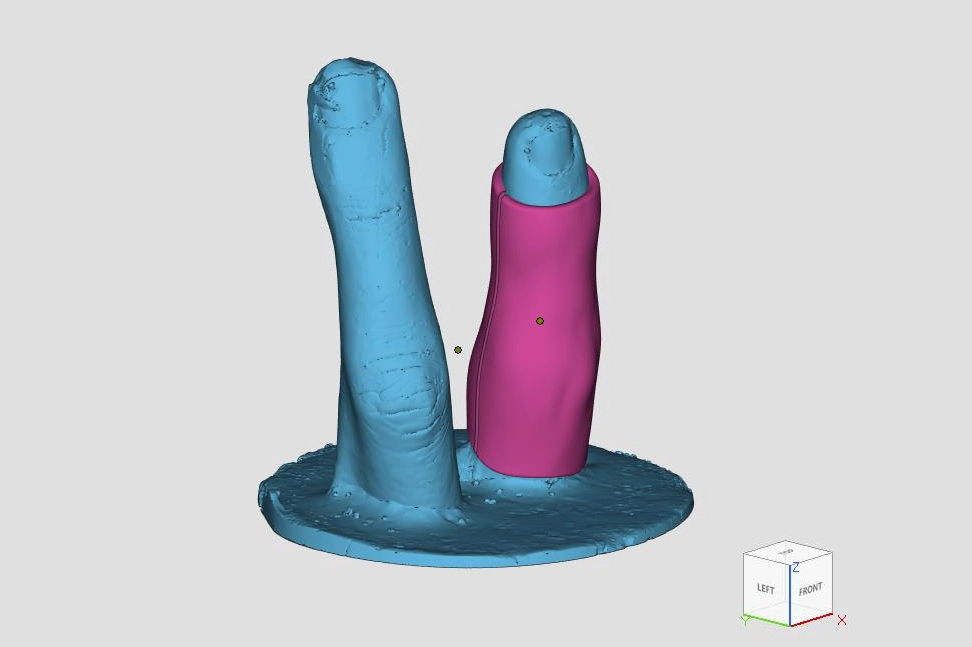
3D design through reverse engineering of protective devices
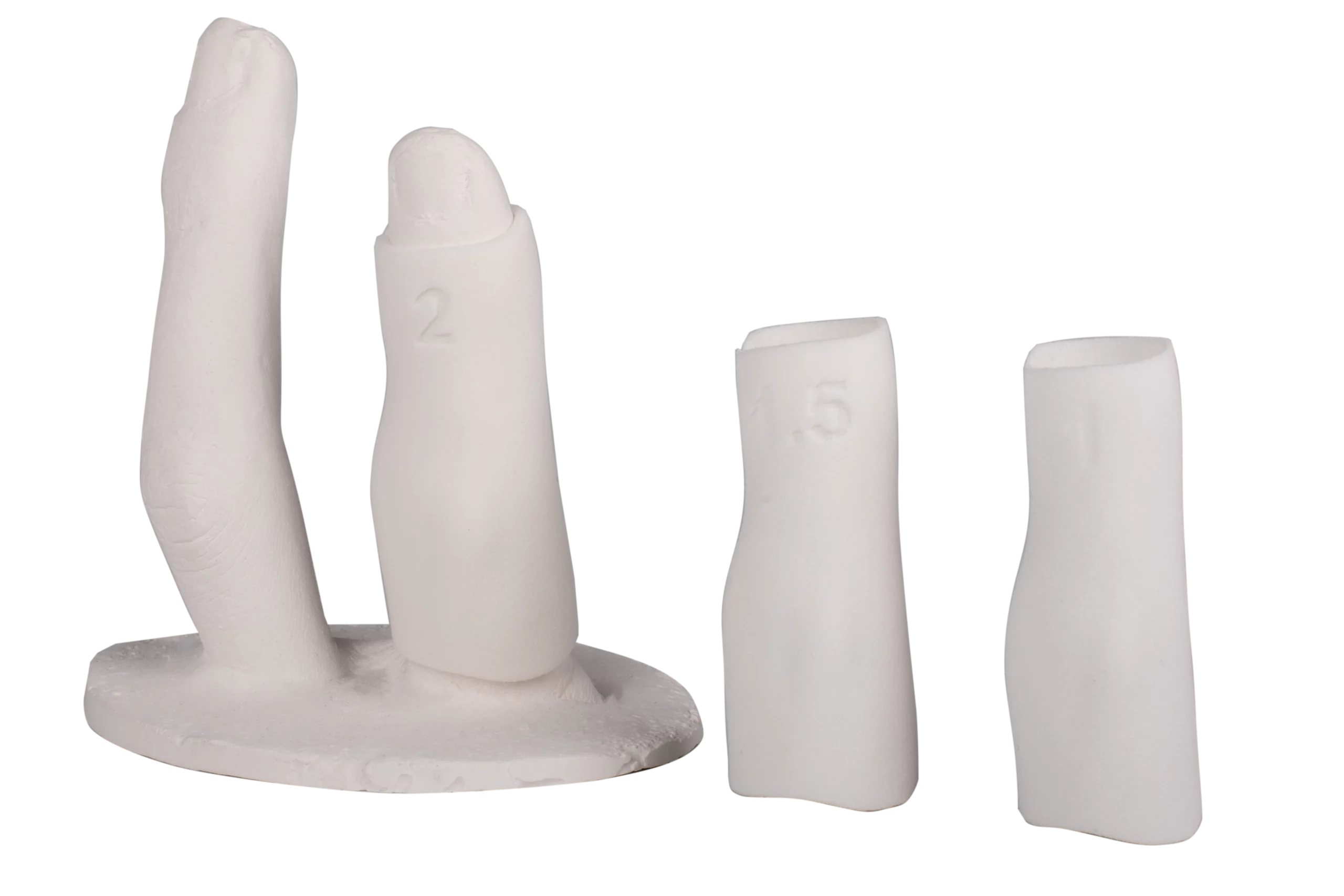
TPU protective devices for Enrico Diamantini in three different thicknesses: 1, 1.5 and 2 mm
Testing phase and results
“The results achieved through the utilization of additive technology are undeniably positive,” remarks Vanna Menco. “This is further corroborated by the outcomes of resistance tests conducted on the material by our supplier, BASF 3D Printing Solutions.”
The testing phase was a critical step in the process. Collaborating with BASF, an effort was made to replicate a volleyball game in a laboratory setting. This involved evaluating the material’s chemical resistance, short and long-term durability, as well as color stability.
To assess the material’s mechanical stability, strength tests were conducted after 30 minutes, 7 days, and 14 days, with the parts immersed in synthetic sweat.
Tensile strength and elongation at break were measured at these intervals. Furthermore, a sudden impact test was performed to simulate crushing, and no significant changes were observed. The color measurement, which determined its stability over time, confirmed that there was no yellowing or noticeable alteration after 14 days. These results provide evidence of the material’s reliability and longevity.
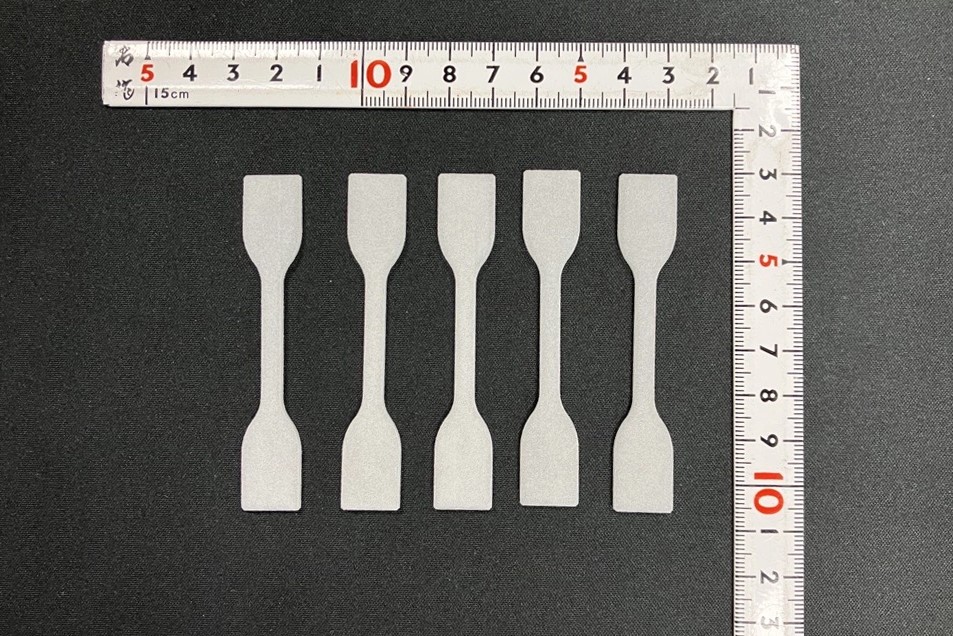
TPU testing samples
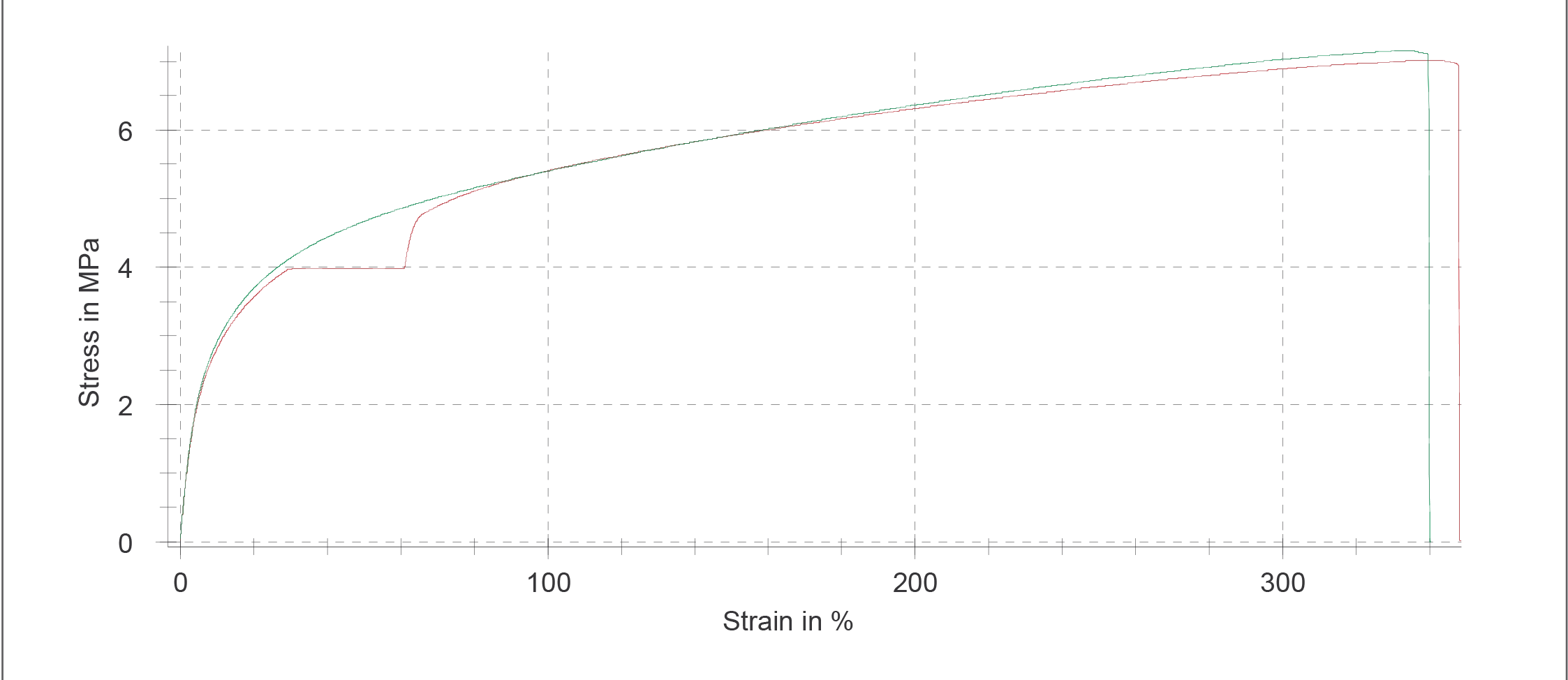
Sudden impact test results
The remarkable durability and strength of the custom 3D-printed devices can be deduced from the absence of significant degradation observed during testing. This ensures the longevity of the product even under repeated stress and in special chemical conditions. Apart from the scientific findings, the enthusiastic feedback from the athletes themselves confirmed the positive results and the significant improvement in playability and game feel.
“I recommend the protection systems made by Prosilas to everyone. Because they are customized, they give maximum comfort in every technical gesture. It’s like not having them!”
says Enrico Diamantini, who used the device during his recovery from a dislocation.
Ivan Zaytsev, on the other hand, continues to use the customised devices on his hands. He says:
“Thanks to Prosilas, I immediately felt comfortable with hitting the ball, the four braces were efficient and above all eco-friendly given the amount of tape they save me!
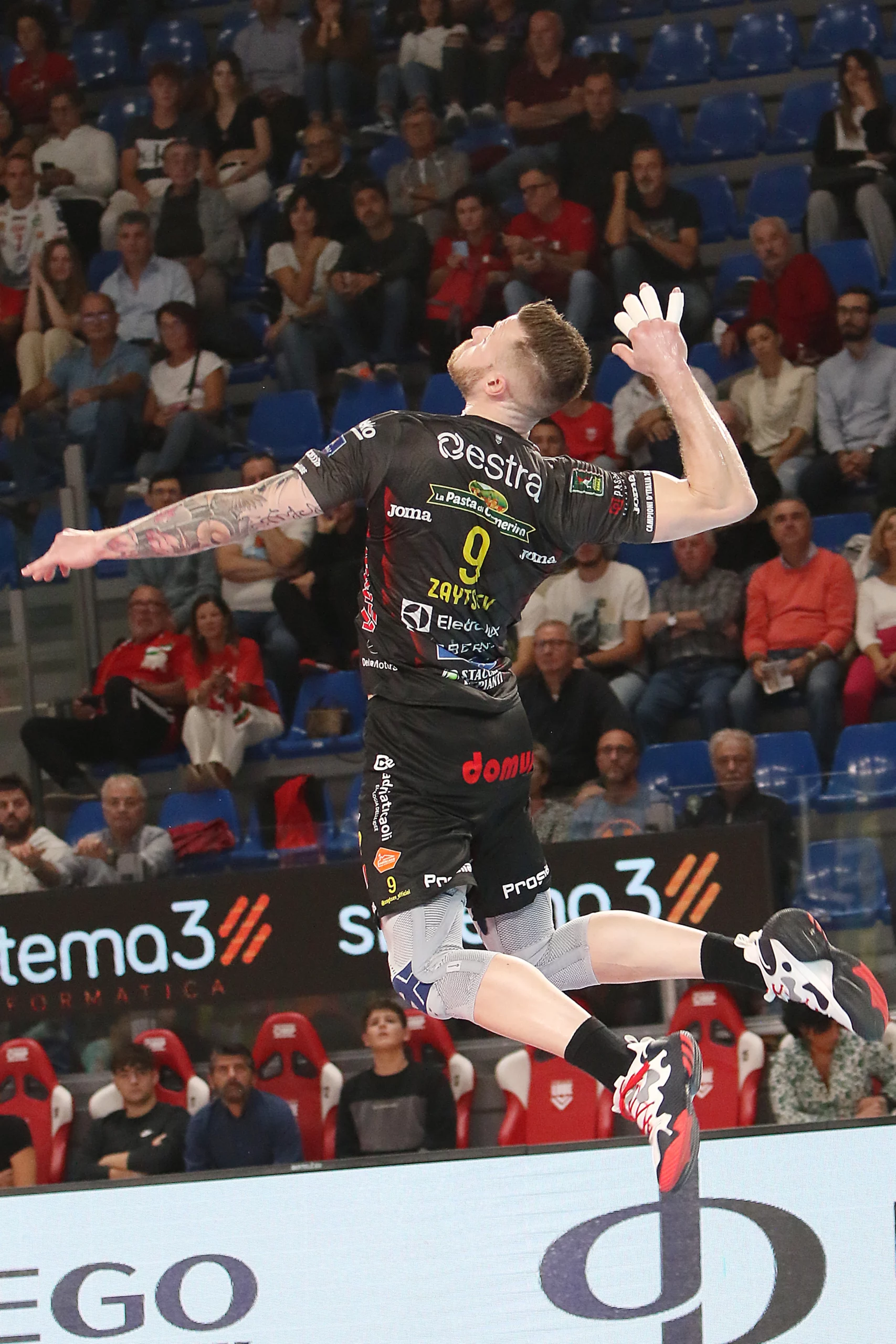
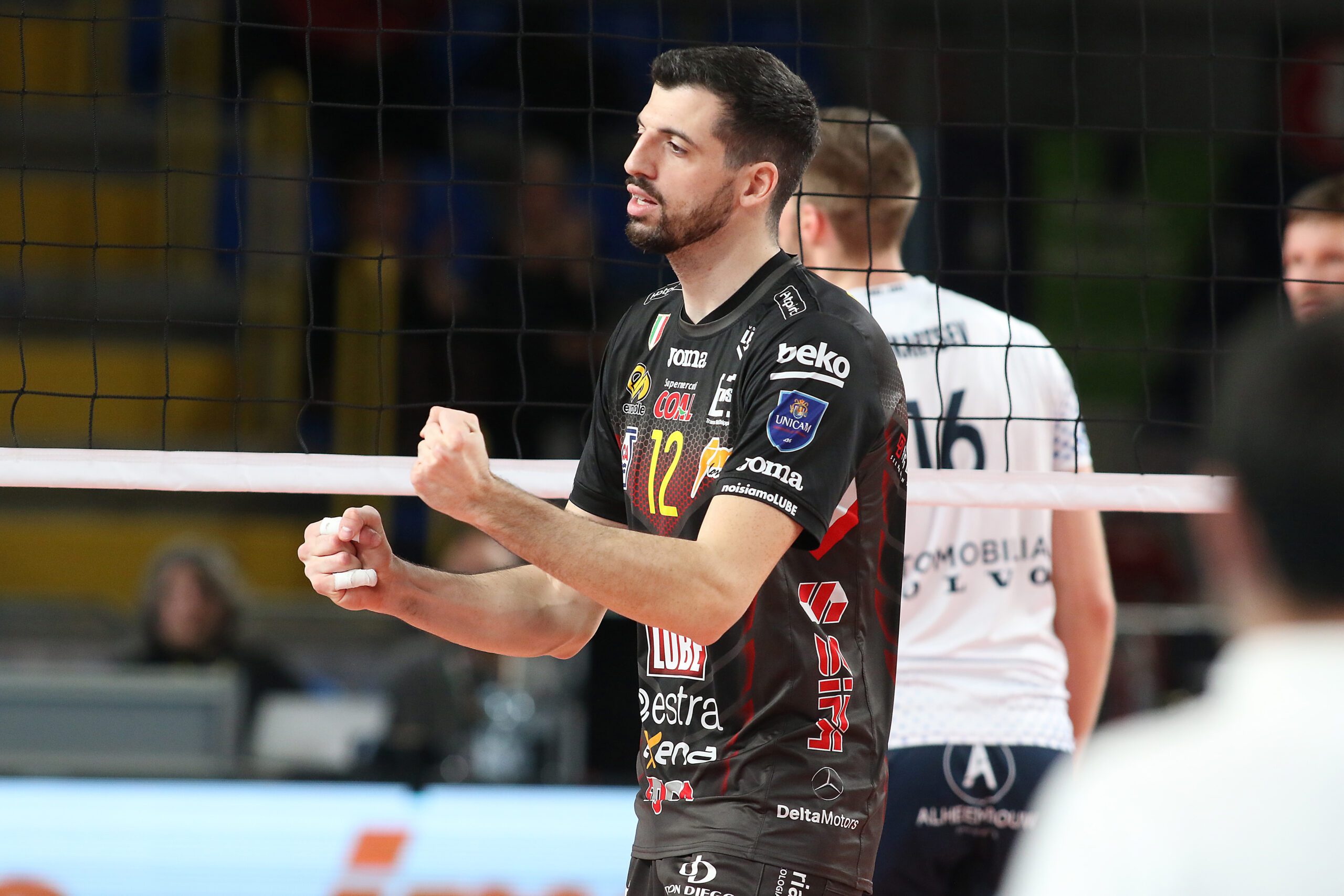
The combination of improved performance, stable feel, durable material, and complete customization results in an overall increase in comfort for athletes during competition, leading to an enhancement in playing performance.
Customization has become an essential trend in the world of ultra-competitive champions, and additive solutions go above and beyond by offering specific shapes and characteristics tailored to each individual athlete’s needs.
Working with BASF 3D Printing Solutions
BASF 3D Printing Solutions, operating under the Forward AM brand, is a division of BASF New Business GmbH that is specialized in advanced materials, system solutions, components, and services in the field of 3D printing. With a lean structure and an agile mindset akin to a start-up, BASF 3D Printing Solutions is well-equipped to cater to the diverse needs of various industries by offering innovative and customized services. The company works closely with other departments within BASF, research institutes, universities, start-ups, and industrial partners to serve customers in automotive, aerospace, consumer goods, and other product categories.
The partnership with BASF 3D Printing Solutions holds significant strategic importance for Prosilas, further solidified by the mutual respect between the two companies.
“Prosilas brings extensive experience in printing our flexible TPU materials, ensuring the consistent delivery of superior quality parts,” explains Tobias Haefele, Product Manager Powder Bed Fusion. “We greatly appreciate their exceptional creativity,” he continues, “and their attitude to push the limits of the 3D printing market, paving the way for new applications, which align with our vision. With their specialist knowledge and established presence in sectors such as fashion, they have earned our trust as a reliable partner in consistently delivering exceptional products over the years. At BASF 3DPS, we are excited to continue our journey with Prosilas, forging a promising future for additive manufacturing.”
